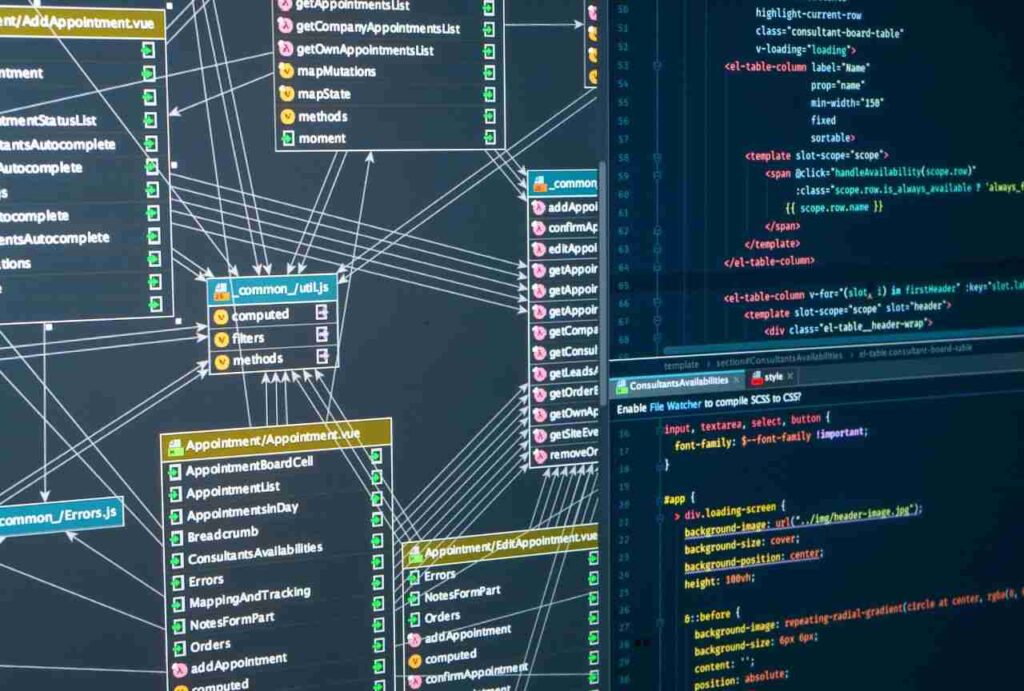The tech industry has entered a critical phase. What was once viewed as a guaranteed path to stability and high income is now marked by layoffs, overhiring corrections, and growing competition. While new technologies such as AI, automation, and cloud computing are expanding rapidly, the job market has become more selective and less forgiving.
Many are now questioning whether it’s still worth pursuing a career in tech. The market is filled with bootcamps, self-paced certifications, and promises of six-figure jobs—but the truth is more complex. Breaking into the industry requires more than just learning how to code or passing a cloud exam. It requires a focused approach, awareness of industry needs, and choosing roles that will continue to hold strong value as technology evolves.
I. What Makes a Tech Job “Still Worth It” in 2025?
Not every tech job holds the same weight in today’s evolving market. Some roles have become overpopulated, automated, or outsourced, while others continue to grow in relevance and long-term value. If you’re considering a career move or starting from scratch, understanding what makes a tech role worth pursuing is critical. Below are the key factors that define whether a job in tech still offers real potential going into 2025.
1. Long-Term Industry Demand
A valuable tech job must be connected to areas of consistent and projected growth. Roles that serve foundational or infrastructure-level functions—such as cloud, security, and systems engineering—continue to be prioritized by companies regardless of short-term hiring shifts. These are not influenced heavily by trends; they are essential to digital operations.
When choosing a direction, it’s important to align with fields that businesses rely on year after year. The more integral a role is to keeping systems secure, operational, and scalable, the more resilient it is to market shifts.
2. Low Risk of Automation or Replacement
As AI and automation tools expand, some roles are becoming increasingly susceptible to replacement. Entry-level tasks in basic web development, simple testing, and content production are already being supported or handled by automated systems.
However, positions that require critical thinking, infrastructure management, complex problem-solving, or cross-functional integration are harder to replicate through automation. These include fields like DevOps, cybersecurity, site reliability, and cloud architecture, where real-time decisions and deep understanding are irreplaceable.
3. Scalability and Career Progression
A job worth pursuing must offer a clear path for advancement. Some roles in tech, while easy to access, offer limited growth and lead to stagnation. Others provide a launchpad into higher-value specializations and leadership opportunities.
For example, starting in help desk or IT support can lead into roles in networking, cloud engineering, or security. A strong tech job creates room to expand into related areas without needing to completely restart your learning or career path.
4. Clear Entry and Learning Pathways
A tech job that’s worth pursuing should have accessible learning resources, certifications, and practical ways to build skills—even outside of formal education. This is especially important for those who are self-taught or changing careers.
Fields like Linux systems, cloud platforms, and DevOps offer well-documented entry points through certifications and hands-on labs. The more structured and transparent the path, the easier it becomes to measure progress and stay motivated.
5. Global Relevance and Cross-Industry Application
The best tech jobs are not restricted to a single industry or location. Careers such as cloud engineer, data security specialist, and platform engineer are in demand across healthcare, finance, education, government, and startups.
Jobs with cross-industry demand are more future-proof because they allow professionals to transition between sectors without having to retrain or adjust to entirely new systems. This level of adaptability adds long-term stability and flexibility to your career.
II. The 10 Tech Jobs That Still Matter in 2025
1. Cloud Engineer / Cloud Architect
🔷 Why It Still Matters
Cloud computing remains one of the most essential pillars of modern digital infrastructure. Businesses across all industries continue to shift from on-premise environments to cloud platforms such as AWS, Microsoft Azure, and Google Cloud Platform. This transformation is not short-term. It’s a long-term operational shift driven by the need for flexibility, scalability, and cost-efficiency.
The demand for professionals who can build, maintain, and optimize these environments continues to grow. Companies require experts who understand not only how to deploy resources in the cloud but how to architect entire infrastructures that support growth, security, and integration across teams.
🔷 What You Do
As a cloud engineer, your tasks typically include:
- Designing and implementing scalable cloud solutions
- Configuring and deploying cloud-based infrastructure
- Monitoring performance and resolving infrastructure issues
- Ensuring systems are secure and meet compliance requirements
Cloud architects handle higher-level responsibilities such as planning entire infrastructures, selecting technologies, setting security protocols, and ensuring solutions are aligned with business goals.
🔷 Career Value
This role offers long-term job stability, competitive compensation, and cross-industry relevance. Whether in healthcare, finance, retail, or tech, cloud expertise is increasingly necessary. Professionals with strong hands-on skills in AWS, Azure, or GCP are consistently ranked among the most in-demand specialists globally.
🔷 Good Starting Point
- Learn the fundamentals of networking and operating systems
- Get certified (e.g., AWS Certified Solutions Architect, Azure Administrator Associate)
- Practice building projects in the cloud using free or low-cost tiers

Also Read: 10 Eye-Opening Tech Career Advice You Need to Hear
2. AI Developer
🔷 Why It Still Matters
AI is not just a trend, it has become a strategic focus for companies worldwide. From automating internal operations to enhancing customer experience, artificial intelligence is being embedded into a growing number of products and services. Businesses are now hiring AI developers to build and integrate machine learning models that support real-world use cases.
As AI adoption continues to rise, so does the need for professionals who understand model design, optimization, data processing, and deployment.
🔷 What You Do
AI developers typically:
- Design and train machine learning models
- Work with large datasets to extract patterns and insights
- Build AI applications for tasks such as recommendation, classification, and automation
- Optimize and fine-tune model performance
They often work closely with data scientists, product teams, and MLOps engineers to deploy models in production environments.
🔷 Career Value
AI development combines technical complexity with practical business value, making it one of the most resilient and future-relevant tech career paths. As companies continue to invest in AI solutions, the need for qualified professionals who can build and manage intelligent systems is growing rapidly.
🔷 Good Starting Point
- Learn Python and libraries such as TensorFlow, PyTorch, and scikit-learn
- Gain a solid understanding of mathematics and statistics for model development
- Explore structured learning paths through platforms like Coursera or fast.ai
3. Help Desk / IT Support
🔷 Why It Still Matters
Despite being entry-level, help desk and IT support roles remain critical in most organizations. These professionals are the first point of contact when users experience issues with hardware, software, or connectivity. Beyond resolving problems, they also help maintain operational continuity and support system efficiency.
What sets this role apart is its accessibility. It allows individuals without technical backgrounds to gain real-world experience and grow into specialized IT fields such as networking, system administration, or cybersecurity.
🔷 What You Do
Typical responsibilities include:
- Troubleshooting hardware and software issues
- Managing user accounts, passwords, and access permissions
- Installing and configuring devices and applications
- Escalating complex issues to higher-level teams
This role provides a strong foundation in both technical problem-solving and communication, two skills that are vital in every tech career.
🔷 Career Value
Help desk roles offer more than just a starting point. They provide direct exposure to business systems, workflows, and technologies that shape the modern workplace. With consistent performance and continuous learning, professionals in this role can move into higher-paying and more specialized positions within a relatively short time.
🔷 Good Starting Point
- Study for certifications like CompTIA A+, ITIL Foundation, or Microsoft 365 Fundamentals
- Practice with basic Windows, networking, and troubleshooting tools
- Learn how to document and communicate solutions clearly and effectively
4. MLOps Engineer
🔷 Why It Still Matters
As artificial intelligence continues to grow in adoption, organizations are facing a new challenge, how to manage machine learning models after they are developed. MLOps (Machine Learning Operations) bridges the gap between data science and production environments. The role focuses on making machine learning workflows reliable, scalable, and repeatable.
MLOps engineers are essential for deploying, monitoring, and maintaining AI systems in production, making this one of the most important and future-oriented roles in the AI ecosystem.
🔷 What You Do
An MLOps engineer is responsible for:
- Building and managing machine learning pipelines (CI/CD for ML)
- Automating data preprocessing, model training, and deployment
- Monitoring model performance and retraining when necessary
- Ensuring compliance, reproducibility, and efficiency of ML systems
They often work with cloud platforms, containerization tools, and orchestration systems to manage the end-to-end lifecycle of AI models.
🔷 Career Value
This role offers a strategic combination of software engineering, data handling, and automation. MLOps engineers are increasingly valued in industries that are scaling AI beyond experimentation into enterprise-wide systems. The demand for this role is expected to increase as more organizations require stable and well-maintained ML infrastructure.
🔷 Good Starting Point
- Learn Python and machine learning libraries (scikit-learn, TensorFlow)
- Get familiar with DevOps tools such as Docker, Kubernetes, and Git
- Study platforms like MLflow, SageMaker, or Vertex AI for deployment and monitoring
5. Linux System Engineer
🔷 Why It Still Matters
Linux is the backbone of modern IT infrastructure. From servers and embedded devices to cloud platforms and networking systems, Linux is used extensively across environments. Organizations rely on Linux professionals to manage systems efficiently, maintain performance, and secure operations.
As companies expand their reliance on cloud-native services, containers, and automation, Linux expertise has become even more critical. This role supports many others, including DevOps, cybersecurity, and infrastructure engineering.
🔷 What You Do
Linux system engineers are responsible for:
- Installing, configuring, and maintaining Linux servers
- Monitoring performance, applying patches, and securing systems
- Writing shell scripts to automate tasks and system updates
- Managing storage, permissions, and networking configurations
They often work closely with developers, cloud engineers, and operations teams to ensure smooth and secure system performance.
🔷 Career Value
Linux system engineers play a core role in most IT environments. Their knowledge supports both legacy systems and modern cloud-based architectures. This role provides long-term value, competitive salaries, and acts as a strong foundation for more advanced positions in systems, cloud, or automation engineering.
🔷 Good Starting Point
- Learn shell scripting (Bash) and basic system commands
- Study Linux+ or Red Hat Certified System Administrator (RHCSA)
- Practice through virtual labs or home labs to gain real experience
6. Cybersecurity Analyst / Engineer
🔷 Why It Still Matters
With digital threats increasing in frequency and sophistication, cybersecurity has become one of the most protected areas in tech. Companies of all sizes need experts to prevent breaches, detect intrusions, and maintain compliance with regulations. This demand is expected to rise for the foreseeable future as cyber risks evolve across sectors.
Cybersecurity professionals play a vital role in protecting data, systems, and infrastructure from both internal and external threats.
🔷 What You Do
Cybersecurity analysts and engineers are responsible for:
- Monitoring systems for vulnerabilities or suspicious activity
- Investigating security incidents and implementing response strategies
- Designing and enforcing access controls, firewalls, and encryption
- Conducting regular audits and ensuring policy compliance
Engineers often build and implement security frameworks, while analysts focus more on detection and response.
🔷 Career Value
Cybersecurity offers both high compensation and job security. It is one of the least affected fields during hiring slowdowns because of its direct link to risk mitigation. With multiple paths available, such as SOC analyst, penetration tester, or cloud security specialist, it also allows for career specialization and growth.
🔷 Good Starting Point
- Begin with CompTIA Security+ or Certified Cybersecurity Entry-level Technician (CCET)
- Learn about network security, SIEM tools, and system hardening
- Study frameworks such as NIST, CIS Controls, or MITRE ATT&CK
7. Site Reliability Engineer (SRE)
🔷 Why It Still Matters
Companies are becoming increasingly dependent on digital infrastructure. As applications scale, user expectations around performance and uptime continue to rise. Site Reliability Engineers (SREs) are essential to maintaining these high standards by ensuring systems are stable, fast, and recoverable under stress.
This role continues to gain relevance because it supports both the operational and engineering sides of an organization. SREs help bridge gaps between software development and infrastructure teams.
🔷 What You Do
SREs are responsible for:
- Monitoring system performance, availability, and reliability
- Automating incident response and infrastructure tasks
- Building tools that improve deployment and observability
- Conducting root cause analysis and implementing long-term fixes
They use metrics and service-level objectives (SLOs) to guide performance improvements and reduce unplanned downtime.
🔷 Career Value
SREs are valued for their ability to create systems that scale without sacrificing reliability. This role offers high compensation, long-term relevance, and broad opportunities across tech platforms, SaaS, finance, and cloud-native businesses.
🔷 Good Starting Point
- Learn monitoring tools (Prometheus, Grafana), CI/CD, and scripting (Python, Bash)
- Study infrastructure as code tools (Terraform, Ansible)
- Understand Linux systems, containers (Docker), and orchestration (Kubernetes)

Also Read: 15 Jobs at High Risk of AI (Is Yours On The list?)
8. Full Stack Developer
🔷 Why It Still Matters
While some areas of software development have become saturated, full stack development remains in strong demand. Companies still need professionals who can build and maintain both the front-end and back-end of applications. The role is especially important in startups, product-driven teams, and internal tools development.
Being able to contribute across the entire stack allows developers to deliver complete features independently, which is highly valuable in lean teams.
🔷 What You Do
Full stack developers:
- Design and develop user interfaces using front-end frameworks (React, Vue, etc.)
- Build APIs and backend logic with technologies like Node.js, Python, or Ruby
- Work with databases (SQL or NoSQL) to manage data efficiently
- Integrate authentication, storage, and third-party services
They often participate in the full software lifecycle from development to testing and deployment.
🔷 Career Value
This role provides flexibility, creative problem-solving opportunities, and consistent demand. Full stack developers are not restricted to a single technology and often gain broader business exposure compared to narrowly specialized roles.
🔷 Good Starting Point
- Learn HTML, CSS, and JavaScript thoroughly
- Get comfortable with front-end libraries (React, Angular) and back-end tools (Express, Django)
- Understand database fundamentals and API design
9. DevOps Engineer
🔷 Why It Still Matters
DevOps engineers are central to modern software delivery. They are responsible for automating infrastructure, optimizing deployment pipelines, and supporting agile development. As digital products require faster iteration and higher uptime, the need for DevOps continues to grow across industries.
DevOps professionals support a continuous integration and continuous deployment (CI/CD) culture, which has become standard in competitive tech environments.
🔷 What You Do
DevOps engineers handle:
- Automating build, test, and deployment workflows
- Managing infrastructure using code (IaC) with tools like Terraform or Ansible
- Monitoring systems and setting up alerts for reliability
- Supporting collaboration between developers and operations
They work closely with cloud services and are expected to maintain performance, cost-efficiency, and resilience.
🔷 Career Value
DevOps remains one of the highest-paying and fastest-evolving tech roles. Professionals in this space gain valuable exposure to cloud, security, networking, and development practices, all within one role.
🔷 Good Starting Point
- Learn a scripting language (Python, Bash), Git, and CI/CD tools (Jenkins, GitHub Actions)
- Get familiar with Docker, Kubernetes, and cloud platforms (AWS, Azure)
- Study infrastructure automation using Terraform or similar tools
10. Data Center Technician
🔷 Why It Still Matters
While much of tech is shifting toward software-defined infrastructure, physical systems still form the foundation. Data center technicians play a crucial role in maintaining the physical hardware that powers cloud platforms, enterprise servers, and large-scale networks.
As companies expand their data infrastructure and edge computing becomes more important, demand for skilled hands-on professionals remains steady.
🔷 What You Do
Data center technicians:
- Install, maintain, and troubleshoot server hardware and networking equipment
- Replace failed components and manage cabling
- Perform diagnostics and follow detailed maintenance protocols
- Support compliance and documentation for audits and security policies
They ensure minimal downtime and support scalable computing environments by keeping physical systems running optimally.
🔷 Career Value
This is one of the most reliable entry-level roles with clear growth into system administration, network operations, or cloud infrastructure. It’s also geographically flexible, with opportunities in both centralized data centers and regional edge locations.
🔷 Good Starting Point
- Study for CompTIA A+ and Network+ certifications
- Learn basic server hardware, cabling, and safety standards
- Explore job opportunities with hosting providers, cloud companies, or enterprise IT teams
III. How to Choose Among These Roles
Selecting the right path in tech requires more than following industry trends. It involves identifying where your skills, interests, and long-term goals align with real market demand.
If you’re just starting, consider entry points like Help Desk, Linux System Administration, or Data Center Technician, which offer strong learning foundations. If you already have experience, assess your technical strengths and consider whether you’re more aligned with building systems (e.g., DevOps, Cloud Engineering) or securing and maintaining them (e.g., Cybersecurity, SRE).
Review current job postings in your region, study the required skills, and explore how your background can connect to one of these 10 future-proof roles. Continuous learning, hands-on practice, and certifications can significantly accelerate your path forward.



